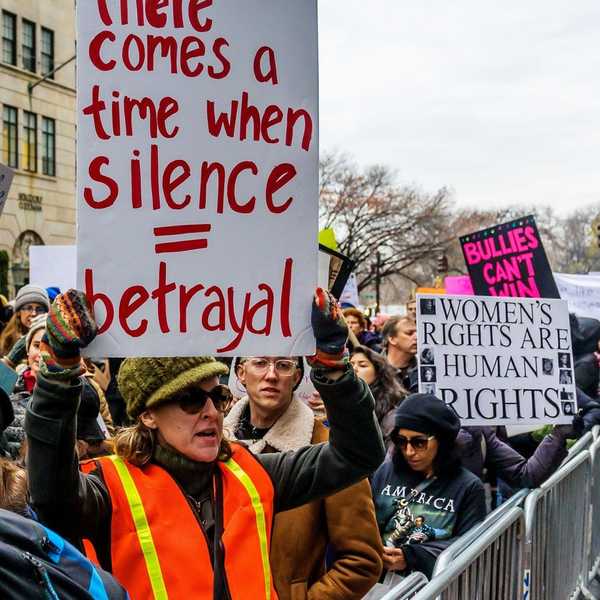Many of those who currently oppose race-conscious policies and programs do so with the presupposition that modern inequality has nothing to do with historical injustice. They argue that, indeed, there may be inequality of outcome but there is no inequality of opportunity and the unequal outcome is a natural occurrence that has nothing to do with governmental intervention, and government intervention is not needed to achieve parity of opportunity nor outcome and would be an unconstitutional pursuit.
Nowadays, the general response from advocates of affirmative action to arguments such as these has been ineffective and account for the slow, if not already apparent death, of race-conscious policies. Their failure to have the more compelling argument is due to a common case of historical amnesia. Instead of pursuing a historically-based argument, they favor the moral high ground, beating the old horse of "equality" instead of the forgotten donkey of historical precedent.
The appeal can be reasoned, though, as there is a considerable amount of power in numbers and aiming for a general goal of equality is wholly inclusive and can be pursued in a docile manner that does not heavily disturb those atop the translucent socio-economic hierarchy.
This approach loses value when considering the original intent of affirmative action. The contemporary agenda is crafted around one's "differences" and how these differences "can be engaged to achieve excellence.” While there is some evidence that suggest cognitive diversity does add to workplace productivity, it does not fulfill the original intent of affirmative action policies and only works, at best, to stagnate the progress that has been made on civil rights for African Americans.
The original intent of affirmative action, as laid out by President Johnson in a speech given in 1965, was to grant African Americans "the same chance as every other American to learn and grow, to work and share in society" in order to make up for the state-sponsored injustice done against them throughout this country's history. Simply advocating for inclusive practices does not meet this end and does not stand up to the scrutiny of the opposition.
Nonetheless, how one measures the rate at which African Americans grow and share in this society has not always been clear. To measure this, some have resorted to an evaluation of their standard of living, or how much celebrity representation they have on the red carpet or in sports. Historically, though, educational attainment has been the most common metric used for measuring the progress of African Americans in this country. However, recent studies have come out that have shown the inadequacy of such a standard.
In a study done by Duke University's Research Network and The New School, they concluded that educational successes did not result in economic gains for African Americans in the same way that it did for whites.
"For black families and other families of color, studying and working hard is not associated with the same levels of wealth amassed among whites. Black families whose heads graduated from college have about 33 percent less wealth than white families whose heads dropped out of high school. "
The study goes on to demonstrate that "the median black family has $7,113 in wealth, while the median white family has $111,740 in wealth," and that a black household that has a college degree has $160,000 less wealth than a white household with one.
The study also goes out of its way to debunk plausible claims of blacks not pursuing education with the same level of aptitude as their white counterparts. Stating that "when black and white families are similarly resourced, black parents provide substantially greater financial transfers to their children for the purpose of their education."
The study even evaluates employment rates and determines that white families whose breadwinner is unemployed still has two times as much wealth as a black family whose breadwinner is working full-time - effectively dismantling the notion that blacks simply do not work hard enough.
The question then becomes, what has caused this deafening disparity that even the great equalizer of education can't overcome.
The obvious answer is slavery - case and point, but this answer can be disaggregated into periods in history which could prove to be more compelling to the stubborn-hearted.
As many arguments go, slavery occurred hundreds of years ago and no one alive today was directly affected by it nor directly participated in it; thus, contemporary inequality has nothing to do with slavery. For argument's sake, we'll grant this perspective merit. But even with a generous approach, this argument succumbs to falsity when confronted with the de jure nature of segregation.
Segregation in the country was much more than personal prejudices that encouraged whites to move away from blacks and keep them out of their neighborhoods. These prejudices were enacted upon and sanctioned by the government, and the most liberal, ambitious government agenda was at the forefront of upholding segregationist ideals - The New Deal.
After taking office, President Roosevelt set out to address the endemic housing shortage spread across the country by implementing the Public Works Administration, which was the first form of public housing for civilians. The program was particularly aimed at providing white lower and middle class working families with housing, and it also provided some housing for homeless blacks but these projects were decidedly segregated.
President Roosevelt also enacted the Federal Housing Administration whose role was to subsidize the mass-production of neighborhoods - places we now refer to as suburbs; however, these subdivisions were created with the explicit requirement that no homes be sold, or even resold, to African-Americans.
By 1960, only around 2% of all homes built through the FHA was granted to African-Americans. As it was, most African-Americans piled into public housing through the 1940's and 1950's while whites were strategically driven towards suburban through discrimination in loan mortgages. This was done through redlining, where banks "determine[d] where they will not issue loans " based on a map produced by The Home Owner's Loan Corporation that had black neighborhoods colored red - a map that was soon adopted by the FHA and even the Veteran's Administration.
With blacks now compacted into urban areas and public housing and whites in newly formed suburban areas with resources galore, the Fair Housing Act of 1968 was passed that finally allowed blacks to be able to purchase homes in white neighborhoods. However, blacks were now not able to afford these houses due to the home appreciating over time, from around 100%-400% in most cases.
The appreciation of the homes provided by the FHA and VA allowed for an amassment of wealth which would soon be trickled down to unborn generations. Duke's study further speculates that "Families with assets buy crucial advantages for their children, such as the ability to obtain a college degree without accruing costly educational debt." And since black have never been provided an adequate opportunity to build wealth, the gap between those who have historically had resources and those who have been systemically shut out from it continues to increase.
Simply claiming that equality for all is an imperative front from which to fight is not enough, at least for black people who persist to lag behind in income, educational attainment, and wealth; notwithstanding multiple studies that conclude that blacks contribute to education more and are more apt to take jobs that whites and Hispanics are not willing to take.
For those who agree with any form of diversity and inclusion or those who unquestionably promote the ideal of equality for all, consider how this message is effectively perpetuating the heinous crimes done to blacks by this country. You are now the perpetrator too.
#YouToo



















